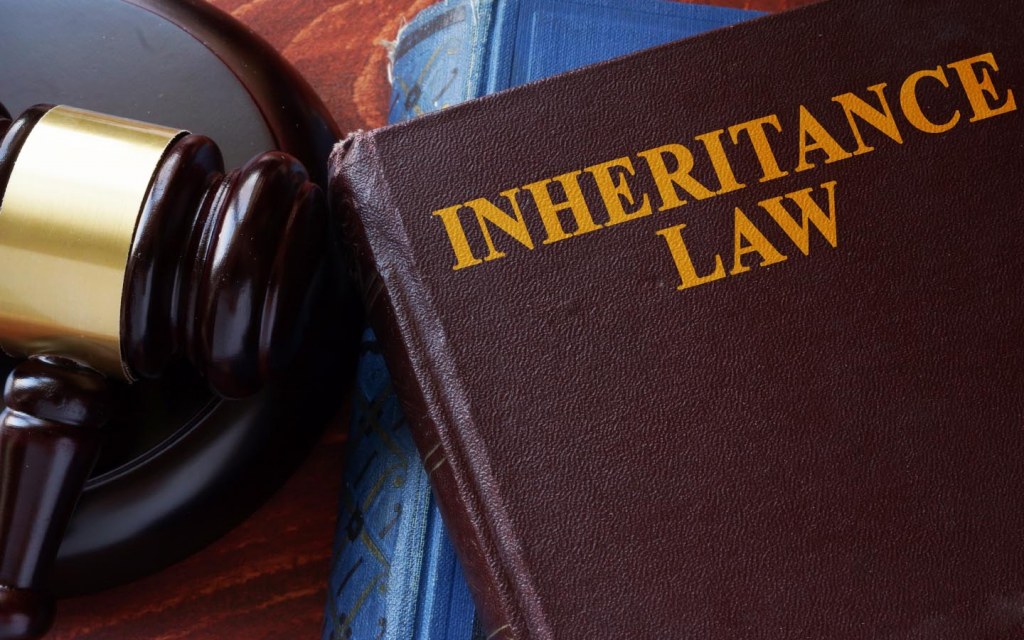Home » Laws & Taxes » Here’s What You Need to Know about Property Rights of Women in Pakistan
Update (January 19, 2021): As per the report published in a leading newspaper, the Senate Standing Committee on Law and Justice has unanimously passed the Enforcement of Women’s Property Rights Bill, 2020, that aims to protect and secure the property rights of women in Pakistan.
Though the constitution allows equal property ownership rights to women, a large number of women across the country are forced to let go of their share in inheritance in the favour of male family members. However, the latest amendment seeks a quick and efficient mechanism to ensure women are able to receive their fair share in the property.
The Section 7A of the Enforcement of Women’s Property Rights Bill, 2020, states, “procedure for suit already pending: notwithstanding anything contained in any other law for the time being in force, where the suit for possession through partition of inherited property of a woman is already pending in any court of law the same shall be decided within 60 days form the publication of this act in the official gazette.”
It further adds, “Section 7B notification of judges to try suits: the district judge shall designate the civil judge to exclusively try the cases of possession partition and ownership mentioned under this act.”
There has always been a considerable amount of confusion revolving around the property rights of women in Pakistan, especially when it comes to real estate ownership and division of inherited property.
However, owing to certain social and cultural restrictions along with a general lack of awareness regarding the issue, most women in the Pakistani society don’t know their own property rights or how to effectively exercise them. This is one of the main reasons why women across the country, particularly in the rural areas, often end up giving away their share to male relatives, completely unaware of their fundamental rights under the constitution of Pakistan.
Some of the laws governing and protecting the legal property rights of women in Pakistan are as follows:
- Married Women’s Property Act, 1874
- Dissolution of Muslim Marriages Act, 1939
- Muslim Family Laws Ordinance, 1961
- West Pakistan Muslim Personal Law Shariat Application Act, 1962
- Prevention of Anti-Women Practices Act, 2011
Let’s further discuss women’s rights on property in Pakistan.
Women’s Right of Inheritance in Pakistan

Pakistan follows the Sharia rule for division of inherited property among heirs following the death of the owner. As Islam has given women their rightful share in the property; the Muslim Family Laws Ordinance, 1961 and the Muslim Personal Law Shariat Application Act, 1962 protect those rights. They also ensure women get their fair share in the division of inherited property in Pakistan.
In fact, Section 498A of Pakistan Penal Code specifically warns against an unfair division of inherited property. It also talks about the consequences of forcing women to surrender their rightful share to their male relatives. The text says, “Whoever by deceitful or, illegal means deprives any woman from inheriting any movable or immovable property at the time of opening of succession shall be punished with imprisonment for either description for a term which may extend to ten years but not be less than five years or with a fine of one million rupees or both.”
The division of inherited property in Pakistan depends on the number of legal heirs and their gender. There are also some other conditions that may affect the shares of each heir. But this is the general formula used for distribution of property. It is also important to mention that the total amount of movable and immovable assets of the deceased are determined once his or her loans, mortgages and other liabilities have all been legally settled.

Inheritance Rights of a Daughter
In case a woman has one or more brothers, she’ll receive ½ of the brother’s share following her father’s death. It means a male heir will inherit two shares under the law while the female heir will inherit one.
If a woman has one or more sisters but no brothers, then 2/3rd of the property (after paying off loans and other balances) will be equally divided among all sisters.
Meanwhile, if a woman is the only child of her parents, she will receive ½ of the property.
Inheritance Rights of a Mother
Following her son’s death, a woman will receive 1/6th of the property. The rest will be divided between her husband and the deceased’s children.
If the deceased had no children or brothers and only parents as the legal heir, a woman will receive 1/3rd of the property. The other two shares will go to her husband.
In case the deceased had brothers, a woman will receive 1/6th share of the property.
Inheritance Rights of a Wife
If the deceased has children, a woman will receive 1/8th of the property following her husband’s death.
However, if the deceased did not have any children, she will be the rightful owner of 1/4th of the property.
Of course, there are certain special circumstances that can affect the division of inherited property in Pakistan. Moreover, the property rights of women and the shares they receive varies with different religions and sects.
Other Property Structures and Rights for Women
Contrary to popular belief, women in Pakistan have a right to own a property.
Here are some property-related legal rights of women in Pakistan that you should know about.
Dower and Dowry

Dower, also known as Mehr, is a gift a husband is bound to pay his wife. The form of Mehr and its quantity is generally decided by the families of the bride and groom.
Whether the husband gives his wife a house or money that she uses to purchase a house, the woman becomes the sole owner of the property. Once its title ownership is transferred to her name, the wife can do as she pleases with that property under the Property Transfer Act, 1882, and the Muslim Family Laws Ordinance, 1961. In fact, she is legally allowed to sell it without even sharing it with her husband.
However, in case a marriage does not survive, the Dissolution of Muslim Marriages Act, 1939, ensures that women have complete ownership of all property that they had earned for herself. But it is important to mention if the woman demands dissolution of marriage, also known as khula, she cannot claim her right to the Mehr. Similarly, if it was the husband’s decision, the woman is entitled to her dower.
Furthermore, a woman has full rights to her dowry. It is a movable or immovable property given by the bride’s family as a social practice. If the parents or guardians of a woman give a house or any other sort of real estate as a dowry, the woman becomes its sole owner. However, she must have the property transferred to her name. If a woman’s name is present on the ownership deed, no one can deprive her of her property rights in Pakistan.
Gift Deed and Will

Another general misconception is that women cannot execute a Will or testament in their lives. Under the law, a woman doesn’t need to inform her legal heirs or obtain their consent to dispose of 1/3rd of her legally owned property in Pakistan. However, if the Will favours one of the legal heirs or exceeds 1/3rd of the estate, the consent of other legal heirs is needed.
In a similar manner, a woman can give away some or all of her property through Hiba (gift) in her lifetime. She can also execute a Gift Deed with instructions about how her property must be handled following her death. If a woman acquires property via Gift Deed, she becomes the sole owner of it.
You can also check out our guide on the transfer of property in Pakistan for a better understanding of this issue.
Despite women’s rights on property in Pakistan being concise and clear, it is still considered somewhat of a grey area. If you have any questions regarding the property rights of women in Pakistan, please contact us at blog@zameen.com.
For more information on property and taxes in the country, head over to Zameen Blog – your best source for all lifestyle and real estate-related matters in Pakistan.



